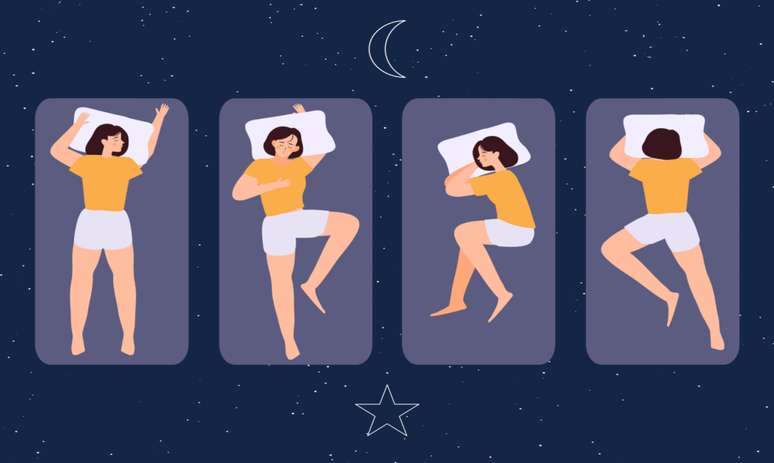Favorite sleeping positions are generally those that put strain on the spine, causing pain and disrupting sleep.
Sleeping well isn’t just about getting the right amount of sleep. This is because the way we sleep, and in particular the position we adopt, can have significant implications for our health, particularly that of our spine. Therefore, it is important to reevaluate our sleep habits to ensure truly restful sleep.
Inadequate positions for the spine
One of the most common, but potentially harmful, positions is sleeping on your stomach. According to Dr. Luciano Miller, an orthopedist and spine surgeon at Albert Einstein Hospital, sleeping on your stomach can cause additional pressure on your spine, forcing it into an unnatural position.
“In fact, when this position is adopted, the spine undergoes unnecessary tension, especially when the head is turned to the side. This inappropriate alignment over time can lead to persistent pain and chronic problems,” explains the doctor.
Another common concern is that of people who sleep on their side. Although for many it seems like one of the most comfortable positions, if performed incorrectly it can be harmful. “Sleeping on your side with your legs fully extended, for example, can cause strain in your lower back,” Miller said.
The fetal position, on your side with your legs curled up, is another favorite for many. But, Miller explains, there are pitfalls here too. “Putting yourself in too tight, for example in a tight fetal position, can limit deep breathing and put additional pressure on the spine and hips. Therefore, it is crucial to maintain balance, making sure not to bend over excessively,” the surgeon emphasizes.
Miller points out that sleeping on your back without adequate leg support can also cause unnecessary strain on your lower back.
Is there a right position?
The best sleeping position is the one that respects the natural posture of the spine. Therefore, when sleeping on your side, it is advisable to bend your legs slightly, which helps maintain a more natural alignment of the spine. When sleeping on your back, your doctor emphasizes that it is important to use a pillow under your knees when sleeping on your back to relieve this pressure and promote healthy alignment.
Luciano emphasizes that the quality of sleep is not only measured by the hours we sleep, but also by the way we position our body. “Awareness of our nighttime habits and a willingness to make the necessary adjustments may be the key to lasting spinal health and, consequently, broader well-being in our lives,” he concludes.
Source: Terra
Ben Stock is a lifestyle journalist and author at Gossipify. He writes about topics such as health, wellness, travel, food and home decor. He provides practical advice and inspiration to improve well-being, keeps readers up to date with latest lifestyle news and trends, known for his engaging writing style, in-depth analysis and unique perspectives.



-1k25lxygpfiat.jpg)




